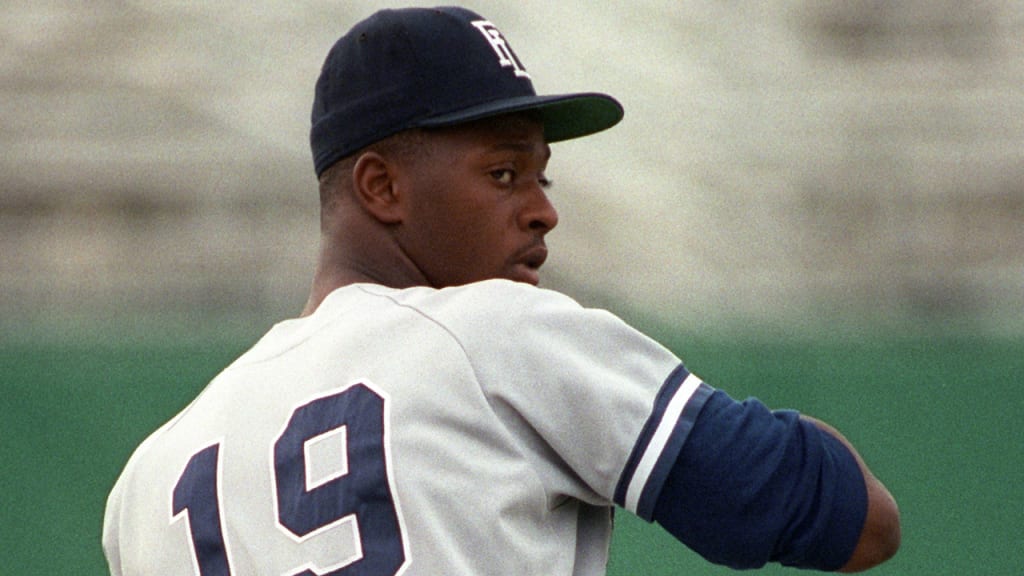
There’s absolutely no doubt in his mind.
Ron Rizzi has seen countless players in his 53 years in the game, and it’s been almost three decades since he saw the man whose name he’s about to answer, but when asked whether there’s one player who stood out among the rest, he has zero hesitation.
“The best pitcher I ever scouted was Brien Taylor,” Rizzi said. “He would have been one of the greatest pitchers in the history of baseball.”
For Rizzi, the answer was simple. Unfortunately for Taylor, his career was anything but. Taylor was a high school senior at East Carteret High School in his hometown of Beaufort, N.C., when Rizzi was introduced to him. The young hurler was 6-foot-3, 220 pounds, a hard-throwing left-hander and every team’s dream.
“I had just started working for the Brewers and the first player I went to see was Brien Taylor,” Rizzi said. “He pitched a perfect game, struck out every single guy and his last pitch was 98. The scouting director called me and said, ‘How did your first game go?’ I told him it was unbelievable. I’m telling him about the pitcher and he said, ‘What grade did you put on him?’ We used [Overall Future Potential] numbers back then and I said, ’72.’”
A prospect’s future tool grades are used to calculate his OFP number, with that number always falling somewhere between 20 and 80. For pitchers, fastball, curveball, slider, changeup, control and other pitch grades are used to arrive at the OFP. Grades are added, a zero is added as the final digit of the sum, and that total is divided by the number of categories used.
“In all the years I’ve scouted, I’ve never put another player above a 70 but him. So the director must have been thinking, ‘Who did we hire here?’ I remember going to see Scotty Schoeneweis at Duke the next day -- and Brien Taylor was at East Carteret High School in North Carolina -- and Schoeneweis was 92-94, lefty with good stuff, and I thought wow, who is this high school guy? It took me months to get him out of my head when I saw other pitchers, trying to realize not everyone can be this guy.”
Ahead of the 1991 Draft, no one else came close to being the guy that Taylor was. He racked up more than 200 strikeouts in 84 innings, allowed just 18 hits and walked 24, dominant against any and every opponent.
The Yankees had the first overall pick that year, and the flamethrower’s prowess and promise made him an easy choice -- though the idea that Taylor might head to a local junior college if the price wasn’t right made his signing slightly more complicated.
“He was the first million-dollar sign from the Draft,” Rizzi said of Taylor’s eventual record-setting $1.55 million signing bonus. “He stayed outside of Louisburg College for a week before it happened. He wouldn’t go to class, but they would negotiate, and then finally he signed.”
Taylor posted a 2.57 ERA in his first year in the Yankees organization, playing for Class A Advanced Fort Lauderdale. The then-20-year-old started 27 games and allowed just three home runs over 161 1/3 innings, walking 66 and striking out 187. He was tested at Double-A Albany-Colonie the following season and put up a 3.48 mark over 163 innings with 150 strikeouts, helping his Yanks to the postseason.
“I did see Brien Taylor pitch his last game healthy,” Rizzi said. “He pitched for the [Double-A] Albany-Colonie Yankees. He played in the playoffs against Harrisburg, when they had Cliff Floyd, Shane Andrews, Curtis Pride [and 19 other future big leaguers].
“He was a man against boys. He had the biggest hands, him and Sandy Koufax, that I’ve ever seen. He threw fastball-change, no breaking ball, deceptive with 98-100.”
Taylor’s career as he knew it came to an end during the offseason that followed those playoffs. A torn labrum in his throwing shoulder stemming from an off-field altercation derailed him, though he would throw in 46 more Minor League matchups between the Yankees and Indians organizations. He last threw in a professional game in 2000. Even with an unfortunate end to a promising career, by that point, he’d long left his mark on Rizzi.
“He’s the best pitcher I ever saw, and I saw everyone you could possibly name who’s ever come through.”
